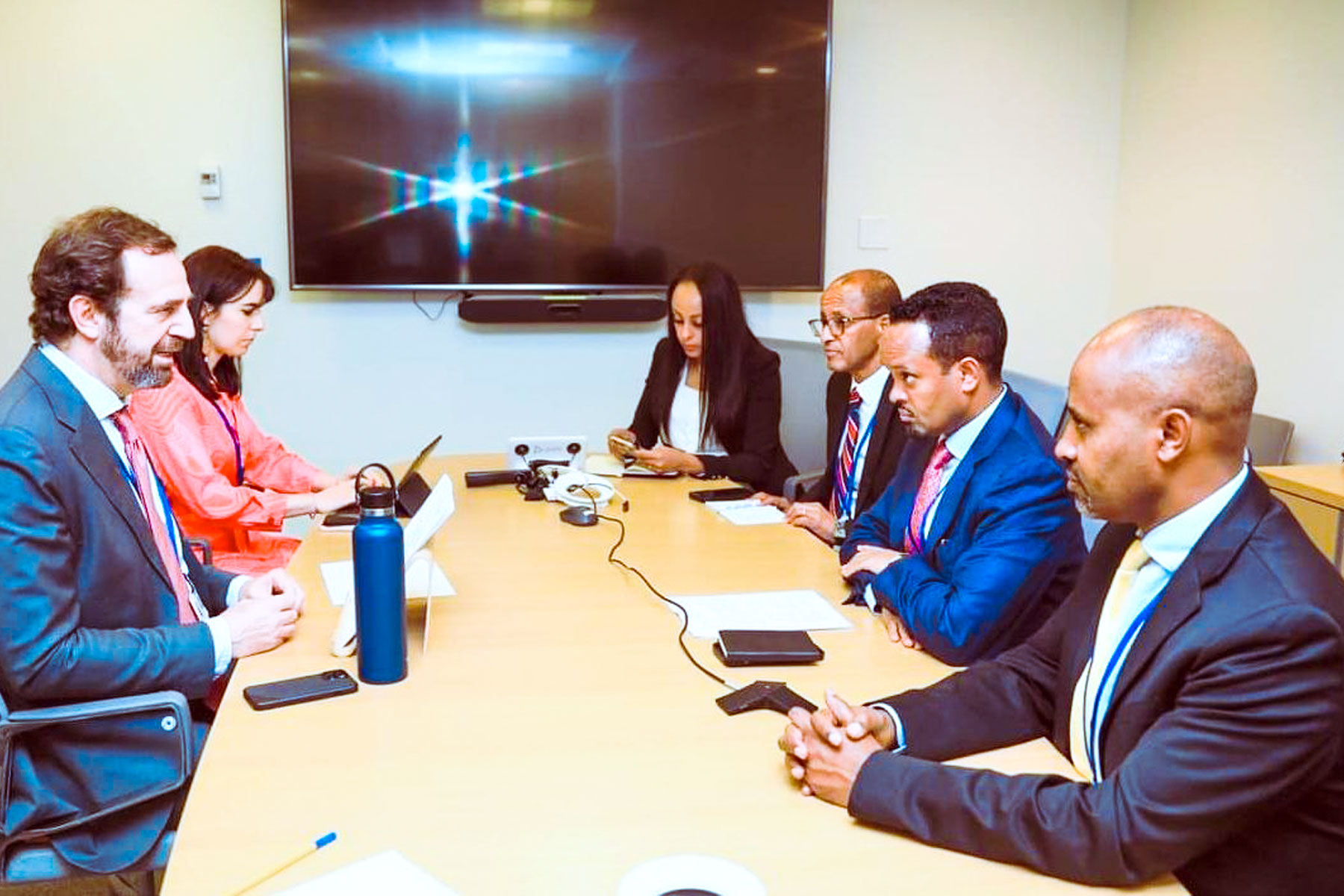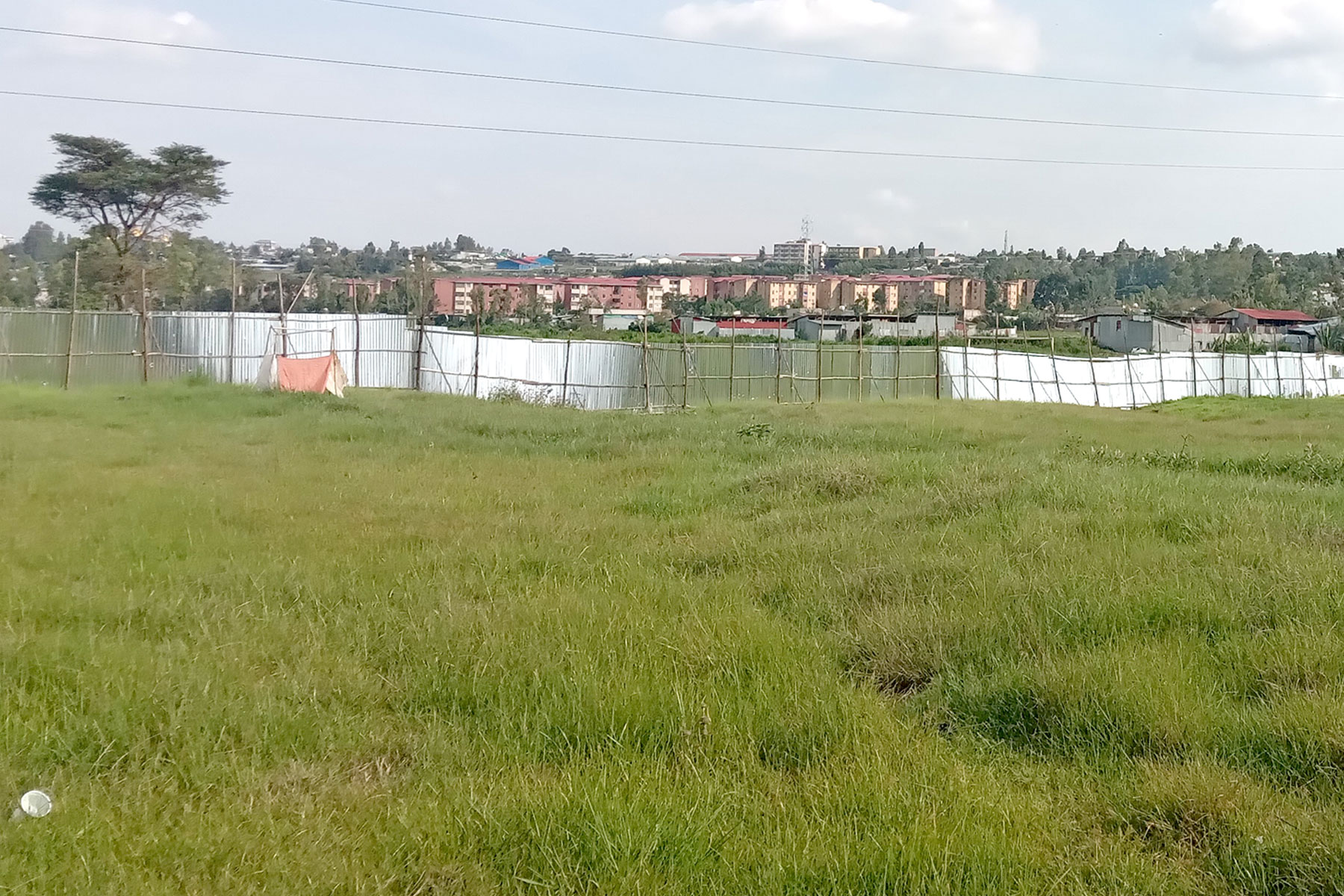
Films Review | Jan 07,2022
Jun 15 , 2019
By Eden Sahle
What we all Ethiopians have in common is living in fear of not knowing what is coming from our leaders and how our routine life can suddenly be disrupted due to government decisions. Often, I find myself thinking how much the public has been neglected and disrespected by authorities. Whether we like it or not, it’s the action that speaks louder, and we do not have competent institutions that can think out side the box.
Institutions feel like it’s their right to prevent the public from getting services that we pay for, to only receive poor service and even be denied of it at any time. Institutions are not convinced that they owe the public an explanation for what they do that is seriously affecting the public’s life and business.
I was in Poland a few months back. It is one of the growing economies of Europe. Their culture and way of life are just fascinating. Most importantly, how their government treats society impressed me. I was told of a story by the locals that the government paved a new street line for women who wear high hills because the women complained that it’s difficult for them to walk on the rough stones in hills. I was amazed by the incredible consideration of their government. This admirable action illustrates how far some governments go to meet their public’s need and how far ours deny us from the essential services.
I quickly imagined how our lives in Ethiopia could get a lot easier if those in power try to consider our basic needs and work hard for it. This is not being too demanding. It is just reminding those in positions of authority that the only reason they are in office is to serve the public.
They are there to serve and protect the public interest as well as not doing any harm. Sustainable and quality service does not seem to be a solvable equation in Ethiopia. The public dissatisfaction does not ring alarm on institutions and leaders.
What is strange is how meeting the public need, which should have been the utmost necessary component of leadership is entirely and consistently disregarded. The responsibility of providing efficient and uninterrupted service is highly misunderstood, and institutions miss the point of respecting customers.
Being answerable to the public in all its forms involves integrity and competency not just to deliver the meagre service but also to improve it. The endless utility service cuts which we are subjected to often proves how institutions are comfortable in providing inefficient service to the public. It’s regrettable to see these problems never end in Ethiopia.
Unless we start implementing solutions now forever perfecting improvement plans will not amount anything. Unfortunately, this is not something the leadership in Ethiopia finds simple.
Great leadership is about taking responsibility and action. It is staggeringly scary how we never see anyone assume responsibility and take meaningful action to solve these problems.
Inefficient institutions are so used to denying and blaming something else for their problems for the simple reason that it’s easy and they can get away with it while solving problems is hard. We all should be sad about the situation in Ethiopia because what doesn’t make us angry, we will never change.
The more we avoid problems and fail to confront our actions, we will inevitably be stuck in a vicious circle. The justification we are told for all the inefficiencies and unprofessionalism that is rife in Ethiopia is so common it does not mean anything.
Solutions grow from struggles and dedication. Solving Ethiopia’s massive problem doesn’t just sprout out of the ground like grass. It requires adequate planning and execution. We all want to see a developed Ethiopia. But that will not happen unless we come up with better ideas. Leaders need to listen to the public’s pain. Most of the time, the public has a solution as the primary victim of inefficient leadership.
I once came across a public gathering in Kenya where the entire public, literate and illtreat, were called to contribute ideas and solutions during policy formation. It’s so inspiring to observe this commendable practice where the public become the solution provider identifying where the leadership is failing. The practice of working together from the bottom up seems to bring solutions and set priorities.
Unless we tackle and eradicate the conventional cultural narratives of accepting and living by failures, we will continue to merely exist. We need to work through the process of improvement because it does not help to just dream about results which may never come doing things the usual way.
Our leaders have not transformed themselves. That is why they are caught in inactions. Leaders who passionately work for solutions are the ones who can take Ethiopia out from the never-ending poverty. Leaders who work through the stresses and persistence of hard work are ultimately the ones who will make it. These are the most simple and essential component of leadership our government and institutions must uphold.
PUBLISHED ON
Jun 15,2019 [ VOL
20 , NO
998]

Films Review | Jan 07,2022

Verbatim | Jun 15,2019

Verbatim | Dec 24,2022

Commentaries | Jul 24,2021

Commentaries | Jul 29,2023

Viewpoints | Feb 09,2019

Sunday with Eden | Jul 30,2022

Verbatim | Nov 23,2019

Commentaries | Sep 06,2020

Editorial | Sep 10,2022

Photo Gallery | 96729 Views | May 06,2019

Photo Gallery | 88910 Views | Apr 26,2019

My Opinion | 67166 Views | Aug 14,2021

Commentaries | 65758 Views | Oct 02,2021

Feb 24 , 2024 . By MUNIR SHEMSU
Abel Yeshitila, a real estate developer with a 12-year track record, finds himself unable to sell homes in his latest venture. Despite slash...

Feb 10 , 2024 . By MUNIR SHEMSU
In his last week's address to Parliament, Prime Minister Abiy Ahmed (PhD) painted a picture of an economy...

Jan 7 , 2024
In the realm of international finance and diplomacy, few cities hold the distinction that Addis Abeba doe...

Sep 30 , 2023 . By AKSAH ITALO
On a chilly morning outside Ke'Geberew Market, Yeshi Chane, a 35-year-old mother cradling her seven-month-old baby, stands amidst the throng...

Apr 20 , 2024
In a departure from its traditionally opaque practices, the National Bank of Ethiopia...

Apr 13 , 2024
In the hushed corridors of the legislative house on Lorenzo Te'azaz Road (Arat Kilo)...

Apr 6 , 2024
In a rather unsettling turn of events, the state-owned Commercial Bank of Ethiopia (C...

Mar 30 , 2024
Ethiopian authorities find themselves at a crossroads in the shadow of a global econo...

Apr 20 , 2024
Ethiopia's economic reform negotiations with the International Monetary Fund (IMF) are in their fourth round, taking place in Washington, D...

Apr 20 , 2024 . By BERSABEH GEBRE
An undercurrent of controversy surrounds the appointment of founding members of Amhara Bank after regulat...

An ambitious cooperative housing initiative designed to provide thousands with affordable homes is mired...

Apr 20 , 2024 . By AKSAH ITALO
Ethiopia's juice manufacturers confront formidable economic challenges following the reclassification of...